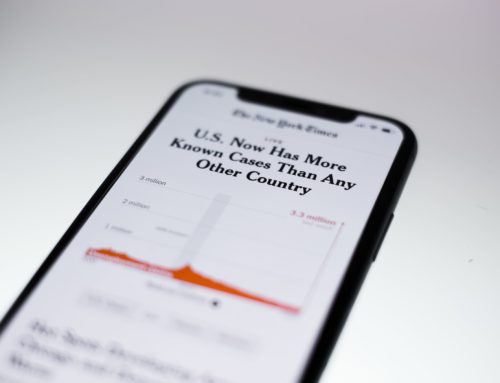Note from Uncle Dale: The Last Word, or Let’s Go Swimming!
Dale Boam, CI
Hello Everyone! If we haven’t met yet I’m Uncle Dale from Uncle Dale’s Rules for Interpreters. Hi.
This is my first submission in (what I hope to be) an ongoing series of articles for Views. RID could not have chosen a better topic for me; I’m a little obsessed with it. It’s like asking “Eighties Space Man” from the LEGO Movie to build a spaceship. I geek out over this topic!
So, here we go!
The Last Words of the CPC
Where does the Code of Professional Conduct discuss confidentiality? Tenet 1.0.
As a profession we interpreters are pretty solid on our obligations to clients as far as confidentiality goes. Many of us can quote the Illustrative Behaviors of Tenet 1.0 verbatim, by number. Because 1.0 it’s right up front, it’s the first Tenet.
Where does the CPC discuss avoiding conflicting roles?
Still, a good number of us can pull that out of our heads, it’s Tenet 3.0. But I’m guessing fewer of us can quote the Illustrative Behaviors. Tenet 3.0 is further down on the page and we get a little tired of reading.
If I ask about Respect for Colleagues or Respect for Consumers most interpreters are pretty sure which one is Tenet 4.0 and which is 5.0, but when it comes to the Illustrative Behaviors fewer of us can actually quote them. We can pull out some of the wording, but we may need to consult the Internet for the full text, as well as for a reminder of the order of the Illustrative Behaviors.
So now we come to it. What is the final sentence of the CPC? To put it another way, what are the CPC’s last words to us as professionals?
7.2 Keep abreast of laws, policies, rules, and regulations that affect the profession.
Literally, the last word in the Code of Professional Conduct is, know the laws and policies that guide and constrain our profession (psst, that includes knowing the CPC). Very few of us could quote 7.2 without the help of a search engine. It’s ALLLLLL the way at the end. There are so many Guiding Principles and Illustrative Behaviors between Tenant 1.1 and 7.2
Remember my calling 7.2 “The Last Word” is meant in jest.
The CPC is not written in order of importance from top to bottom or from bottom to top. We committed to adhere to each Tenet equally, from the first one to the last one.
So. Pop quiz!
Rule 11 – What Do You Know?
Can you name a law that impacts your job as an interpreter?
The Americans with Disabilities Act, that’s an easy one.
Well, maybe it’s easy.
Do you know when the ADA actually applies to any given situation? What does the ADA say about interpreting specifically? Some of us know, others quite honestly don’t, and still others think they know but maybe don’t know it as well as they think they do.
Rule 11. Interpreters talk about the ADA like Middle-School students talk about sex: they like to sound like they know what they are talking about, but are usually just repeating what they heard from other interpreters. (Rule 11).
How much do you know? Let’s find out.
How many employees must a business have in order to be obligated to follow the ADA? If you answered 15 or more, you have part of the answer. The requirement that a business have 15 or more employees only applies if the person who is Deaf wants to WORK for the business (Title I). If it’s a government agency (Title II) or a private company (Title III) like a doctor’s office, or dental clinic or law office the ADA may apply even if there is only one employee.
Did you know that in some situations Section 504 of the Rehabilitation Act of 1973 provides exactly the same protections as the ADA, and in other situations it provides better protection; But you have to know the authority congress used to pass each law to understand when 504 is a better choice?
Did you know there is a provision in the Patient Protection and Affordable Care Act (Obamacare) called Section 1557 that, beginning in 2016, changes the interpretation of Section 504 to require medical providers that accept federal funds (and most hospitals, clinics and doctors offices do) to give “primary consideration” to the Deaf person’s request for an interpreter. This is the higher standard applied to government agencies by Title II of the ADA being applied to private actors. This is new and relatively untested in the courts, but if you look at the history how this language has been applied in Title II cases it should give more power the Deaf patient to demand an interpreter, or even a live interpreter over VRI. Previous to Section 1557 becoming effective both Section 504 and Title III of the ADA just encouraged private hospitals, doctors and medical providers to discuss accomodations with the patient who is Deaf, but did not actually require them to do so. Even if medical providers engaged in such a discussion with the Deaf patient, they were not required to give any consideration to the expressed preference of the Deaf patient, let alone “primary consideration.” The practical result of this change is if the patient requests an interpreter, or even a live interpreter instead of VRI, and the medical provider refuses- the burden is on the medical provider to show an interpreter was not needed instead of on the Deaf patient to prove that an interpreter was needed.
If Obamacare goes away so will that enhanced protection.
Did you know that there is a Bill floating around Congress right now called the ADA Education and Reform Act of 2017 (HR 620) that, if passed, requires a person who identifies a violation of Title III of the ADA (private businesses) to give the violating business 60 days notice before taking any legal action? Right now the language of the Bill says “barriers to access” in some places and “architectural barriers” in others. There is every possibility that HR 620 could be interpreted either by Congress or the Courts to require a person who is Deaf to give a doctor, lawyer, accountant, theatre, conference, other venue or private business 60 days notice before being allowed to engage in any legal action to remedy a failure or refusal to provide the Deaf person with a qualified interpreter. HR 620 is in development so it’s not a law, yet, but the very discussion of weakening the ADA in this way should get every interpreter sit up and take notice! Even if we were not mandated to take notice by 7.2.
Each of the laws or potential laws I’ve mentioned “affect” the profession of interpreting within the scope envisioned by 7.2 of the CPC (and we have not even gotten into the Individuals with Disabilities Education Act, Section 501, the Federal Court Interpreters Act).
These federal laws are the water in which we swim daily, but as a profession we tend to think of them as SEPs (Someone Else’s Problem), until they become our problem…
even though the CPC requires us to give these laws as much attention as we do the confidentiality of the client’s information.
Sizing Up: State v. Federal Laws
Let’s step into a different pool for a minute. Can you name a law in your State that impacts the profession of interpreting or the Deaf community, either positively or negatively? Do you know if there are any Bills in process in this session of your State Legislature that WILL impact your work or impact the rights of the Deaf clients you serve? These questions are, if anything, more important for your daily life than the ones I posed about federal laws.
Let me explain why.
Think about laws like buying clothes. Federal laws are like buying off the rack. They are sized to fit everyone, so they end up not fitting anyone very well. But State laws are like tailored clothes. They are designed to fit the unique needs of each State, so they can be much more specific to the local community and therefore more useful.
For example, in the State where I live, Utah, under State law we have had a certification requirement for interpreters since the early nineties, but it had HUGE holes in it that made it difficult to enforce. There were problems as a result. If someone slipped through the State law requirements then the Deaf consumer had to depend on the ADA for protection. The ADA doesn’t require an interpreter to be certified, it only says “qualified.”
A few years ago consumers who are Deaf got sick of the loopholes in the law and pushed the State Legislature to close them; and the Legislature did. So now in the State of Utah certification is required if an “individual provides interpreter services and a state or federal law requires the interpreter to be certified or qualified.” Utah State Code 35A-13-605 (1). In short Utah has taken control of the definition of qualified. It took qualified out of the “one size fits all” federal rule and tailored it to meet the needs of Utah’s citizens who are Deaf.
That is the power of understanding your own State laws.
Judiciously Providing Information
So, you are thinking, that’s nice and all-but how would I apply that in my daily work as an interpreter. Challenge accepted! Back to the CPC!
2.6 Judiciously provide information or referral regarding available interpreting or community resources without infringing upon consumers’ rights.
In the State of Utah there is a State law that reads:
If it is the policy and practice of a court of this state or of its political subdivisions to appoint counsel for indigent people, the appointing authority shall appoint and pay for a qualified interpreter or other necessary services for deaf or hard of hearing, indigent people to assist in communication with counsel in all phases of the preparation and presentation of the case. Utah State Code 78B-1-202 (5).
On more than one occasion in criminal court, in juvenile court, in family court, or with the office of the Guardian Ad Litem I have interpreted for a conversation that goes a little like this, “your honor if you appoint this office to represent [the Defendant] the costs of providing interpreters will be an undue burden.”
To which the judge replies something like, “well maybe you can use grants from some charitable organization to cover the costs…”
Neither the Judge nor the Public Defender has any idea this law I am talking about exists, and why should they? These are waters we swim in; they do not. On more than one occasion at that point I have requested a bench conference (sometimes to the unnerving surprise of my team… grin) and explained that this law is on the books. Most judges look at me and say, “I know we have to provide interpreters in court that is why you are here, but we are talking about outside the courtroom.”
Then I have to point out the last clause of the text where it says “in all phases of the preparation and presentation of the case.” There is no need to seek charitable donations to pay for interpreters, if the court appoints counsel it also pays for the interpreters needed to communicate with counsel no matter where that communication happens.
That is why 7.2 of the CPC is there. The Judge and the Public Defender don’t know 78B-1-202 (5) exists, because they have never needed to.
But I know it exists, because it’s the water in which I swim; so I “judiciously provided information” as allowed by 6.2.
If you think about it, I kind of hit 6.3 of the CPC while I was at it:
6.3 Promote conditions that are conducive to effective communication, inform the parties involved if such conditions do not exist, and seek appropriate remedies.
Understanding the laws already on the books at a federal and state level is vital, but, what about the laws that are being proposed? Do you know if there are any Bills that could impact your work as an interpreter making their way through your state legislature right now?
Keep in mind that the requirement to know all of this is literally the last word of the CPC.
Knowing that, are you up for a swim?
Dale Boam
Attorney at Law
Dale Boam, CI, is an Associate Professor of Deaf Studies at Utah Valley University, attorney  advocating for the rights of persons who are Deaf, an interpreter and a blogger at “Uncle Dale’s Rules for Interpreters.” He consults and presents nationally on both interpreting and legal topics, including: The Physiology of Interpreting; The Physics of Processing Time; Cohesion and Orphans in Interpretation; Legal Rights of Individuals with Disabilities: Law, Deafness and Personhood; Voting; Making the ADA Effective for the Deaf Community; and Attorneys Serving the Client Who is Deaf. Dale recently received a favorable decision from the 9th Circuit Court that makes Section 504 more accessible to persons who are Deaf (See Ervine v. Desert View Regional Medical Center). Dale has served on advisory committees for NAD, the organizing boards for Deaf Studies, Today!, and the 2007 Deaflympic Games.
advocating for the rights of persons who are Deaf, an interpreter and a blogger at “Uncle Dale’s Rules for Interpreters.” He consults and presents nationally on both interpreting and legal topics, including: The Physiology of Interpreting; The Physics of Processing Time; Cohesion and Orphans in Interpretation; Legal Rights of Individuals with Disabilities: Law, Deafness and Personhood; Voting; Making the ADA Effective for the Deaf Community; and Attorneys Serving the Client Who is Deaf. Dale recently received a favorable decision from the 9th Circuit Court that makes Section 504 more accessible to persons who are Deaf (See Ervine v. Desert View Regional Medical Center). Dale has served on advisory committees for NAD, the organizing boards for Deaf Studies, Today!, and the 2007 Deaflympic Games.
See this article in our Winter 2018 VIEWS for the full interactive experience on pages 24-27.
You can find the accessible PDF here.






Leave A Comment
You must be logged in to post a comment.